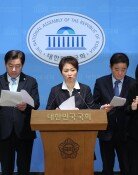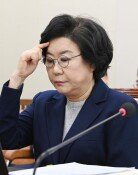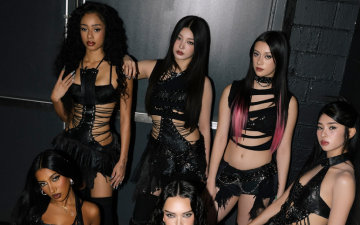KVA Slashes Entire Security Activity Budget
KVA Slashes Entire Security Activity Budget
Posted March. 09, 2006 03:00,
It was confirmed on March 8 that the leading force opposing the abolishment of the National Security Law, the Korea Veterans Association (KVA), has slashed its entire security budget, and is considering merging its key security bureau with another office.
The KVA included security activities funds in its budget last year, but after consultations with its supervising government ministry, the Ministry of Patriots and Veterans Affairs (MPVA), it decided to cut down its entire budget and change it into a budget promoting patriotism and welfare for KVA members. These revised budget plans were approved by the MPVA in late 2005, and passed a National Assembly Budget Examination Committee review.
A KVA official commented, This issue has been decided after consulting with the MPVA, which received comments from some ruling party lawmakers during the October 2005 national audits that the security activity budget of KVA should be re-reviewed.
During the national audits of 2005, Uri Party lawmaker Kim Hyun-mee and others demanded the MPVA review the KVAs security promotion activities, saying, It is inappropriate for the KVA, which receives funding from the government, to hold large-scale demonstrations aimed at normal people and chant anti-governmental slogans or for the resignation of the current government.
The KVAs total budget for this year is 34.6 billion won, consisting of 15.2 billion won from the government, which will be used to create tombs for fallen soldiers, and 19.4 billion won from compensation funds. The compensation funds come from profits earned by KVA umbrella companies, initially go to government coffers, and after approval from the MPVA and National Assembly review, come back to the KVA, and make up most of the KVAs budget.
KVA insiders are protesting that the KVA leadership is cringing in front of the government and ruling party and slashed the entire security activity fund.
Another KVA official commented, So far, the costs for large demonstrations have been paid by members or donations from other organizations. Making this a problem and slashing the annual few hundred million security budget is in fact government intervention in the KVA.
An MPVA official emphasized, The large October 2004 demonstration held by the KVA mentioning the resignation of the government incited this situation.
However, both the KVA and MPVA officially claim that MPVA did not pressure KVA to slash its security-related funds.
There is also controversy arising in merging the security bureau and public information office into a new policy communications office.
The KVA stated, The merger of the security office has been reviewed since July of last year as part of an internal innovation and reorganization, and the fate of the security bureau will be decided by the next leaders that will be elected next month.
But the majority of the members criticize that just like the slashing of the security budget, the merger of the security bureau is really the KVA succumbing to government and ruling party pressure. They view that the government has started to actively subdue the KVA through legislative budget approval as well as by pressuring the MPVA, which supervises the KVA.
A KVA member who is a retired general said, The government is aiming straight at the KVA, which has been at the forefront of government criticism by opposing the abolishment of National Security Law.
Sang-Ho Yun ysh1005@donga.com







